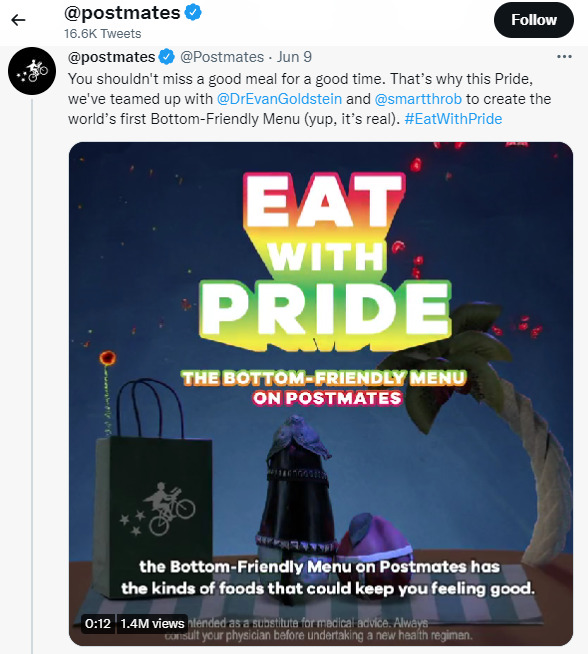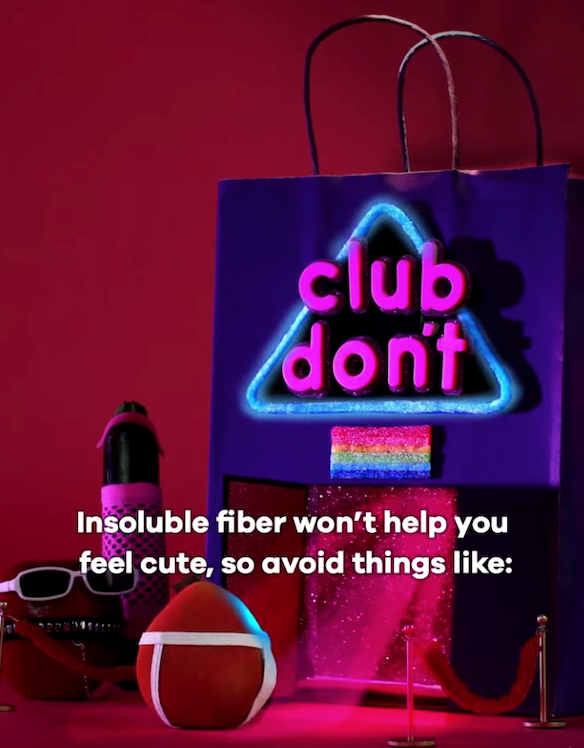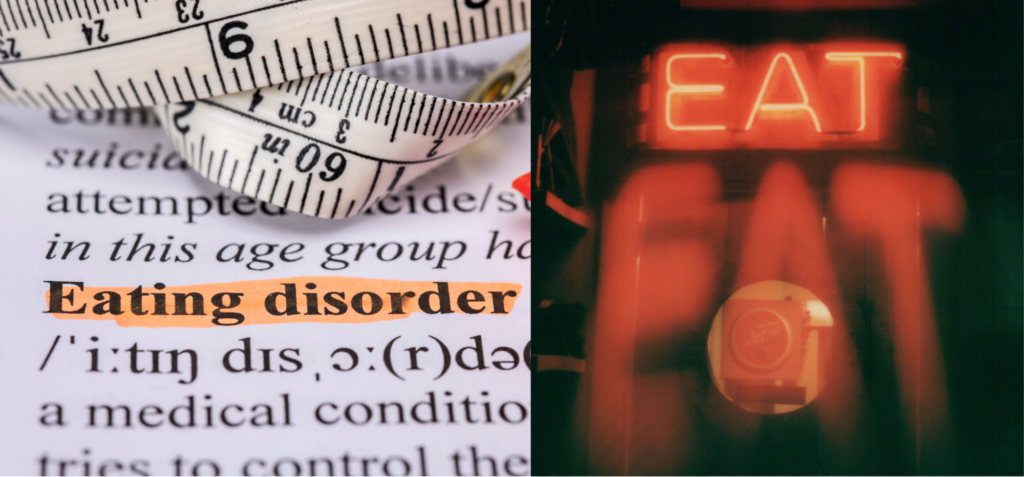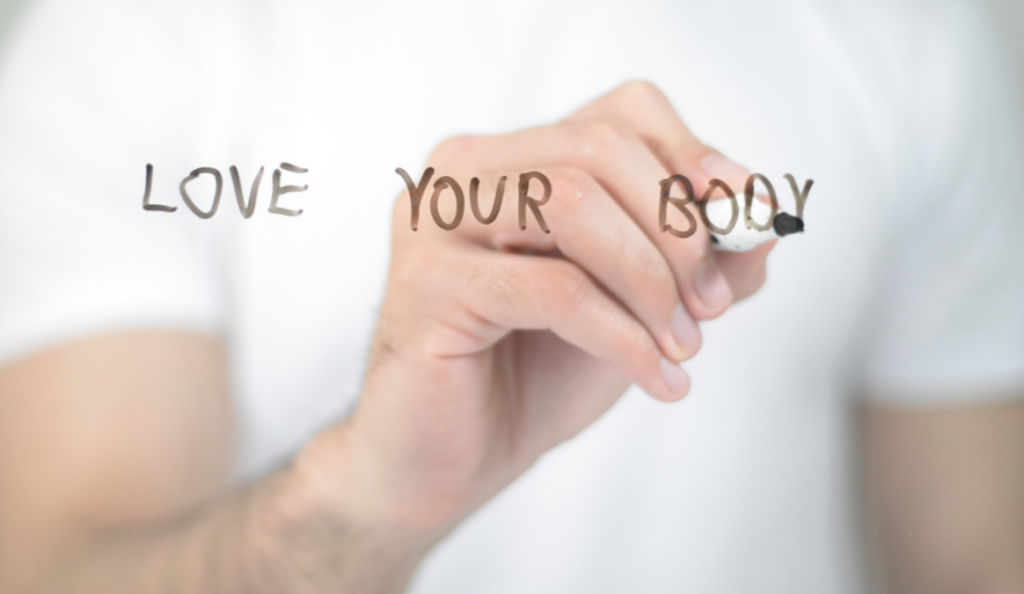Article At Glance:
- Critique of Postmates’ “Bottom-Friendly Menu,” citing harmful stereotypes.
- Analysis of ad’s impact on body image and eating habits in LGBTQ+ men.
- Call for body positivity and authenticity during Pride month.
Postmates and gay social media creator Rob Anderson recently teamed up to promote Postmates’ “Bottom-Friendly Menu” on a video posted on Twitter. Unfortunately, this is a narrative that’s wrapped up in internalized homophobic, femphobic, and fatphobic trash. As a queer sex therapist, I consistently see how damaging these messages can be. Opening up these ads on a Friday morning during Pride month was a pretty discouraging way to start the season.

3 Reasons Why Top/Bottom Binary Advertisements Are So Damaging
The Postmates advertisement (Insta and Twitter) states “if you’re a top, it seems like you can eat whatever you want, but if you’re a bottom, you’re expected to starve?”
Regarding the top/bottom dichotomy: some of us find self-identifying as tops or bottoms useful, but to push this binary on others is counterproductive. In a world that can often be stressful and depressing, especially for queer people facing layers of trauma, sex can be a safe space to experience connection and joy.
Additional Read: How to Recover from Emotional Trauma
1)Reinforce labels for all queer men that restrict us to a specific set of behaviors limits the potential that our sexual experiences can provide us.
Next up: DON’T HAVE A “CLUB DON’T”. JUST DON’T.
A companion sponsored ad on Rob Anderson’s account asks:
“Are bottoms allowed to eat food?”
Lucky for “bottoms,” Postmates and Anderson provide an approved list of foods that bottoms can eat instead of starving. So not only is this promoting the categorization of all queer men as tops or bottoms, but it’s prescribing a set of rules that bottoms are expected to adhere to.
Bottoms are stereotypically associated with femininity, a trait that is historically demonized, resulting in oppression of women and queer people throughout history. In and out of the queer community, masculine men are revered as the most powerful and desired.
2) This advertisement perpetuates the idea that masculine-associated traits should allow more options, including what we eat.
This message also encourages anxiety about a level of “cleanliness,” the burden of which falls on the bottom, and the last thing our sex lives need is more anxiety!
3) Encourage restrictive eating and unhealthy relationships
Queer men have the highest rates of eating disorders of any group.
These ads encourage restrictive eating and unhealthy relationships with food as well as our bodies.
We need to:
- empower each other to eat what feels good to us,
- feel confident in our bodies, and
- NOT reinforce diet culture.
I support anyone wanting to get more in touch with their bodies, including how different foods affect the way we feel. However, this information should be presented as a resource, not an expectation.
(I also generally enjoy Rob Anderson’s work and of course love ordering takeout, so this is a bummer for me.)
As a community, we have a lot to tackle this Pride, including anti-trans legislation, policies oppressing communities of color, and so much more. We don’t need to be distracted by worrying if we’re following the Postmates-approved diet, if our bodies look a certain way, or if our sex is meeting someone else’s ideals.
I hope we can spend this Pride with minimal anxiety and hunger, and can instead support each other by living authentically and listening to our bodies.






